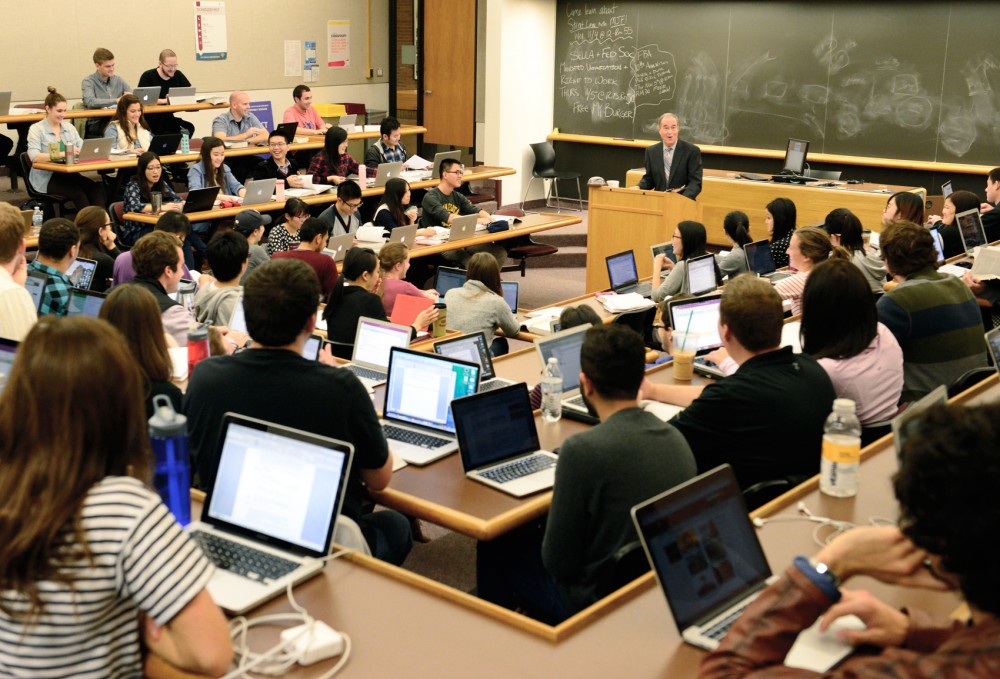As the tumultuous job market for law school graduates continues its recovery, University of Minnesota leaders are wondering whether the Law School still needs the extra financial support it has received in recent years.
School administrators have held that the funding is necessary to maintain the Law School’s high national ranking. But now, as the job outlook for graduates is improving, some members of the Board of Regents are questioning the appropriations.
“We have to take a closer look at whether or not it makes sense to continue to subsidize the Law School,” said Regent Michael Hsu. “For every $3 million in Law School subsidies, it costs $90 per in-state student.”
In the past few years, the University has given nearly $10 million to the Law School to keep tuition stable.
If the Law School didn’t receive funds from the University, its ranking — which is tied for the 20th-best law school in the nation by U.S. News and World Report — would drop, driving down the number of applicants to the University’s law program, said David Wippman, dean of the Law School.
For the past five years, law schools across the nation have seen a drop in enrollment, and applications have dropped nearly 40 percent, he said.
“This is really a national phenomenon,” Wippman said. “It became widely visible around 2010.”
To counter the decline in enrollment, the University gave $3.8 million to the Law School for the 2016 fiscal year and $2.2 million the previous year.
He said the money has helped the school keep its national ranking without raising student tuition to cover costs.
Like all other units within the University, the Law School meets annually with school administrators to discuss finances, he said, adding that the Law School’s budget shortfalls became apparent about three or four years ago.
Recently, the number of students taking the LSAT for the first time has increased.
Still, the University is unsure whether there will be a jump in applicants during the next cycle, Wippman said. He said the Law School and administrators are working on a plan with hopes to improve the budget issues within a couple years.
While Mike Unger, president of the Minnesota State Bar Association, said he can’t speak for the association as a whole, his sense is that law schools around the state will begin to see a rise in applicants.
“It does seem to me that the employment market has been steadily improving,” he said. “But it may never return to past levels.”
Law schools nationwide have faced issues that include high debt loads for graduates, Unger said.
With the possible rise in applications, regents have been looking at the Law School’s budget to study the effect of the University’s Law School allocations.
Regent Richard Beeson said the Law School is essential to the whole University because its high profile helps the school maintain a strong national image.
Yet, the positive aspects of the Law School’s ranking must be weighed against the needs of all units within the University, he said.
“I think there is a value in keeping the reputation and ranking, but that is subjective,” Beeson said.
Regent Darrin Rosha said he understands that the Law School’s issues are seen across other law programs nationwide, but he doesn’t believe the current funding is sustainable.
“It’s been a challenge across the country,” he said.
Rosha said he has concerns about artificially maintaining the school’s ranking since ranking doesn’t actually affect the quality of education at the Law School.
Hsu said he hopes the regents will sit down this year to discuss the state of the Law School.
“We need to understand this because it is causing tuition to go up for other students,” he said.











